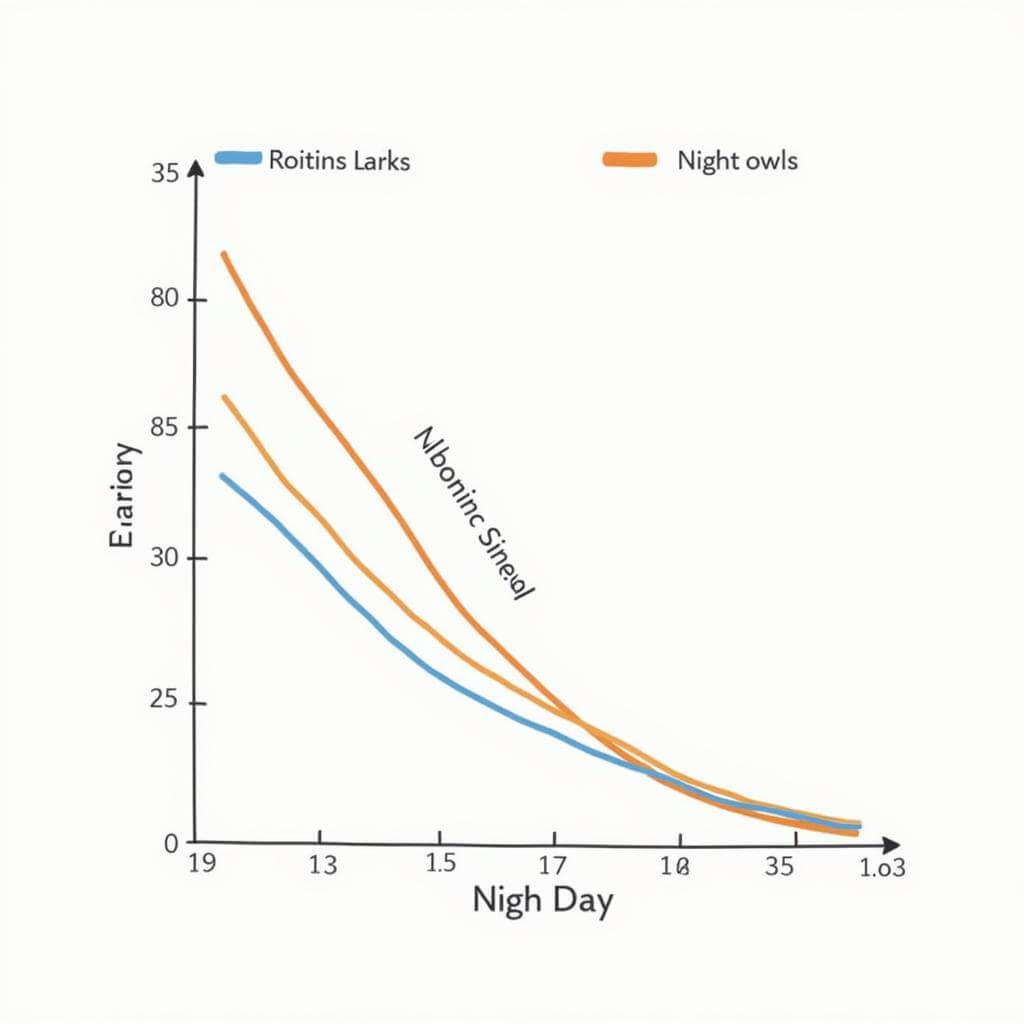IELTS Speaking Part 1, 2 & 3 Topic: Productive Early Morning
Introduction
The topic of describing a productive early morning is a common theme in IELTS Speaking tests. It allows examiners to assess candidates’ ability to discuss personal experiences, time management, and daily routines. This topic has appeared frequently in past IELTS exams and is likely to remain relevant in future tests due to its universal nature and potential for diverse responses.
Part 1: Introduction and Interview
In this section, the examiner may ask questions related to your morning routine and productivity. Here are some potential questions and sample answers:
Q: Are you a morning person?
Band 6-7 Answer:
Yes, I’d say I’m quite a morning person. I usually wake up early and feel quite energetic in the mornings. It’s the best time for me to get things done.
Band 8-9 Answer:
Absolutely, I’m definitely a morning person. I find that I’m at my most productive and focused during the early hours of the day. There’s something invigorating about starting the day at dawn and tackling tasks while the world is still quiet.
Q: What do you usually do in the morning?
Band 6-7 Answer:
In the morning, I usually start with a quick breakfast and then check my emails. After that, I might do some exercise or start working on my important tasks for the day.
Band 8-9 Answer:
My morning routine is quite structured and purposeful. I begin by practicing meditation for about 15 minutes to center myself. Then, I engage in some light physical exercise, usually a jog or yoga, followed by a nutritious breakfast. Before diving into work, I prioritize my tasks for the day and tackle the most challenging ones while my mind is fresh.
Part 2: Long Turn
Cue Card:
Describe an early morning when you accomplished a lot. You should say:
- What day it was
- What you did
- Why you were able to accomplish so much
- And explain how you felt about it
Band 6-7 Answer:
I remember a particularly productive morning last month. It was a Saturday, and I woke up earlier than usual, around 6 AM. I started by making a to-do list for the day. Then, I cleaned my apartment, which I had been putting off for a while. After that, I prepared some meals for the week ahead and even found time to exercise.
I think I was able to accomplish so much because I had a clear plan and started early. Also, there were fewer distractions in the morning. I felt really good about myself at the end of it. It was satisfying to see how much I had done before noon.
 Woman enjoying a productive morning routine
Woman enjoying a productive morning routine
Band 8-9 Answer:
I vividly recall an exceptionally productive morning about three weeks ago. It was a Tuesday, and I arose at the crack of dawn, precisely at 5 AM. I commenced my day with a brief meditation session to sharpen my focus and set my intentions for the day ahead.
Following this, I embarked on an intensive work session, tackling a challenging project that had been looming over me. I managed to make significant progress, completing a substantial portion of the work that I had initially estimated would take several days. Invigorated by this accomplishment, I then proceeded to engage in a high-intensity workout, pushing my physical limits and energizing myself further.
My extraordinary productivity that morning can be attributed to several factors. Firstly, I had meticulously planned my schedule the night before, allowing me to hit the ground running. Secondly, the early hour provided me with uninterrupted time, free from the usual distractions of emails and phone calls. Lastly, I believe the combination of mental clarity from meditation and the quiet, peaceful atmosphere of dawn created an ideal environment for deep, focused work.
The experience left me feeling incredibly fulfilled and empowered. It was profoundly satisfying to have accomplished so much before most people had even started their day. This productive morning set a positive tone for the rest of the week and reinforced my belief in the power of early starts and careful planning.
Follow-up Questions:
- Do you think it’s important to have a morning routine?
Band 6-7 Answer:
Yes, I think having a morning routine is important. It helps you start the day right and be more organized. When you have a routine, you don’t waste time deciding what to do next.
Band 8-9 Answer:
Absolutely, I believe a morning routine is crucial for setting a positive tone for the entire day. A well-structured routine can significantly enhance productivity, reduce stress, and provide a sense of control over one’s life. It allows for consistent habits that can contribute to long-term personal and professional growth. Moreover, a thoughtful morning routine can serve as an anchor in times of uncertainty, providing stability and familiarity.
- How do you think technology affects people’s morning routines?
Band 6-7 Answer:
Technology can be both good and bad for morning routines. On one hand, it can help with setting alarms and checking important information. But it can also be distracting if people spend too much time on social media or emails in the morning.
 Smartphone screen displaying social media feed in bed
Smartphone screen displaying social media feed in bed
Band 8-9 Answer:
Technology has profoundly transformed morning routines, with both positive and negative implications. On the beneficial side, it has revolutionized our ability to access information and streamline tasks. Smart home devices can automate various aspects of our morning, from brewing coffee to adjusting lighting, allowing for a more efficient start to the day.
However, the ubiquity of smartphones and constant connectivity can also be detrimental. Many people find themselves mindlessly scrolling through social media or responding to work emails before they’ve even gotten out of bed, which can lead to increased stress and a less mindful start to the day. This digital intrusion into our mornings can disrupt natural circadian rhythms and impede the body’s wake-up process.
Ultimately, the key lies in harnessing technology judiciously to enhance our routines without allowing it to dominate or detract from the important rituals that set us up for a productive day.
Part 3: Two-way Discussion
Q: Do you think people are generally more productive in the morning or in the evening?
Band 6-7 Answer:
I think it depends on the person. Some people are morning larks and work best early in the day, while others are night owls and are more productive in the evening. It’s important to know your own rhythm and plan your work accordingly.
Band 8-9 Answer:
The question of productivity in relation to time of day is a nuanced and individual-specific issue. While there’s a prevalent societal notion that mornings are inherently more productive, scientific research suggests that productivity patterns are largely influenced by individual chronotypes – our natural inclinations towards specific sleep-wake cycles.
For morning chronotypes, or “larks”, the early hours often represent a period of peak cognitive function and heightened focus. These individuals tend to experience a surge of cortisol upon waking, which can facilitate alertness and productivity.
Conversely, evening chronotypes, or “night owls”, may find their productivity peaks later in the day. They often experience a second wind in the evening hours, characterized by increased creativity and problem-solving abilities.
It’s crucial to note that productivity is not solely determined by the time of day, but also by factors such as sleep quality, nutrition, stress levels, and individual work habits. The most effective approach is for individuals to identify their personal productivity patterns and structure their schedules accordingly, rather than adhering to a one-size-fits-all model of productivity.
 Chart comparing productivity levels of morning larks vs. night owls
Chart comparing productivity levels of morning larks vs. night owls
Q: How has the concept of productivity changed in recent years?
Band 6-7 Answer:
In recent years, productivity has become more about working smart rather than just working hard. People are focusing more on achieving results rather than just spending long hours at work. There’s also more emphasis on work-life balance and taking breaks to avoid burnout.
Band 8-9 Answer:
The concept of productivity has undergone a significant paradigm shift in recent years, reflecting broader changes in technology, work culture, and our understanding of human psychology.
Traditionally, productivity was often equated with long working hours and a relentless work ethic. However, modern approaches have pivoted towards a more holistic view. There’s now a greater emphasis on quality of output rather than mere quantity of time invested. This shift acknowledges that creative and knowledge-based work often requires periods of rest and reflection to achieve optimal results.
The rise of remote work and flexible schedules has further transformed our understanding of productivity. It has challenged the conventional 9-to-5 model, allowing individuals to work during their peak performance hours, which may vary greatly from person to person.
Moreover, there’s an increasing recognition of the importance of mental health and work-life balance in sustaining long-term productivity. Companies are implementing wellness programs and encouraging regular breaks, understanding that burnout is counterproductive in the long run.
Technology has also played a pivotal role, with productivity tools and apps becoming ubiquitous. While these can enhance efficiency, they’ve also led to discussions about digital overwhelm and the need for mindful tech usage.
Lastly, there’s a growing appreciation for the role of collaboration and effective communication in productivity, moving away from the idea of the solitary, hyper-focused worker to more team-based, synergistic approaches to tackling complex problems.
Key Vocabulary and Phrases for High Scores
-
To hit the ground running – /tə hɪt ðə graʊnd ˈrʌnɪŋ/ – To start something and proceed at a fast pace with great enthusiasm.
Example: “I always prepare my tasks the night before so I can hit the ground running in the morning.” -
Meticulously – /məˈtɪkjələsli/ – In a way that shows great attention to detail; very carefully and precisely.
Example: “I meticulously plan my schedule to ensure maximum productivity.” -
To set a positive tone – /tə set ə ˈpɒzətɪv təʊn/ – To create a good atmosphere or mood that influences the rest of an experience.
Example: “A productive morning often sets a positive tone for the entire day.” -
Invigorating – /ɪnˈvɪɡəreɪtɪŋ/ – Making one feel strong, healthy, and full of energy.
Example: “I find the crisp air of early morning invigorating and conducive to productivity.” -
Paradigm shift – /ˈpærədaɪm ʃɪft/ – A fundamental change in approach or underlying assumptions.
Example: “The concept of productivity has undergone a paradigm shift in recent years.”
Examiner’s Advice
To achieve high scores in the IELTS Speaking test:
- Practice regularly: Engage in daily speaking exercises, focusing on fluency and coherence.
- Expand your vocabulary: Learn and use a wide range of words and idiomatic expressions relevant to common IELTS topics.
- Work on pronunciation: Pay attention to word stress, sentence stress, and intonation to enhance your clarity.
- Develop your ideas: Don’t just give short answers. Elaborate on your points with examples and explanations.
- Stay updated: Keep abreast of current affairs to discuss a variety of topics confidently.
- Use a variety of grammatical structures: Demonstrate your command of English by using both simple and complex sentence structures.
- Listen carefully: Make sure you understand the questions fully before answering.
- Be authentic: While it’s good to prepare, avoid memorizing answers. Speak naturally and genuinely about your experiences and opinions.
Remember, the key to success in IELTS Speaking is not just about perfect English, but about communicating effectively and confidently.

